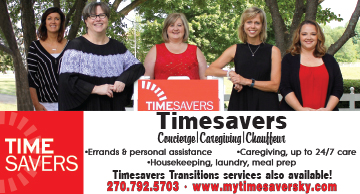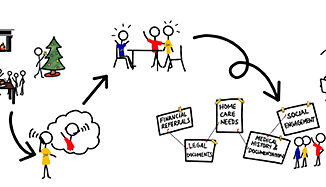
It’s the season! Hot dogs, Cracker Jacks, family traditions, and the call that starts it all – play ball! Well before the games begin, even well before spring practice, the powers that be pore over rosters and positions, strengths and weaknesses, motivators, alliances – all the things that can make or break a team’s success. Building the team is as important or more important than what happens on a day-to-day basis.
Teams matter in more than sports. When it comes to caring for our loved ones, family members, friends or neighbors, the team is vital. Even more vital is making sure the right person is playing the right position BEFORE the first pitch is thrown. So, what are the positions and who might be a good fit for each one?
First, every professional operation needs a manager. The manager will work with the coach and the players to develop a viable game plan and analyze the pool of available talent. In a family, the manager will need to have both the time and a good knowledge of the game, i.e. the loved one’s health status, physicians, habits and routines, possession of legal and financial records, and most important, the loved one’s wishes for the future.
The manager’s position requires someone who is assertive yet understanding, able to devote time to research and phone calls, and who will be able to trust the coach and players enough to let them excel at their positions. This might turn out to be an oldest child who is retired; a spouse who has already established relationships with physicians, financial advisors, and elder law attorneys; or a professional care navigator who develops a bond of trust with the entire family.
Second, the team needs a coach. The coach should understand the players and be able to keep them inspired and motivated. The coach encourages everyone to work together for the ultimate winning experience – the best quality of life for the person who is the focus of the game. The coach needs good relationships with everyone involved and should be able to sense when to push and when to pull back.
A good candidate for the coach might be an adult child who has a positive, can-do attitude and can communicate in many different styles with many different kinds of people. If adult children are not geographically available, a possibility for the coach’s position could be a family counselor, a pastor who is willing, or a best friend who knows the family well. Sometimes the manager and the coach are the same person. This can be an effective strategy when employing a care navigator or care management agency.
Now for the players’ positions. Pitcher, catcher, clean-up batter, shortstop, outfielder – each one has unique skills and qualities. The one quality all must possess is being a team player, working together for the person being cared for to win the life they deserve.
Analyzing who will fill each position isn’t easy. Someone might be a perfect fit to take dad to the doctor and understand and communicate everything said and conveyed. Someone else might be great at grocery shopping and meal planning – nutrition and hydration are crucial to winning the game. Yet another candidate may hit home runs when keeping financial records and reconciling bank statements.
This team sounds perfect, right? There are plenty of players from whom to choose for each position, everyone is stepping up to play, and the team will work as a well-oiled machine. While this is the case in some families and in some situations, it is the exception rather than the rule. So how do you build a team when the family dynamic does not lend itself to teamwork, or when there is only one adult child, or no adult children geographically close enough to be effective players?
Care navigation and care management are real things. They have become more prevalent as care has become more complex, as decisions have become more complicated to make, and as options have become more numerous and varied. You will run across franchises, medical care management only, individuals with geriatric care training, and independent agencies that make care navigation a part of the services offered.
This choice can form the core of your team, so make it carefully. Interview, ask questions, try to determine if a particular navigator is the right fit for your unique circumstances, because your circumstances are unique. Each individual has a history and a personality and a soul all wrapped up in a life. Extensive training does not make a navigator a perfect fit, although training is important. Who the care navigator is in relationship to the person seeking assistance is perhaps the most important consideration in this choice.
Cost is also a concern. Some services are potentially covered under Medicare or Medicare Advantage plans. Some are financed through agreements between the care navigator and resources/vendors to which they refer. Some are a private pay service. Examining the breadth of the navigation services offered (medical, legal, financial, family communication, decision-making, counseling) can help narrow down the choices. Timesavers is one of those choices.
So who will be on your team? If you haven’t begun thinking about it, begin now. Don’t wait for a crisis, a traumatic injury or illness, or the death of a family member, to have these conversations. As trite as it sounds, practice makes perfect, so the earlier the players are in position, the more smoothly the game will go. It’s the season – play ball!
– by Elizabeth Downing
About the Author: Elizabeth Downing is Director of Outreach for Timesavers Concierge, Caregiving & Chauffeur in Bowling Green, Kentucky. Timesavers seeks to raise awareness of issues relating to aging and caring for aging loved ones, and to let people know they are not alone in the journey, while working to provide the highest quality care available. Elizabeth has completed a Certificate in Care Management from Boston University. For more information about Timesavers’ care navigation services, go to www.mytimesaversky.com.




